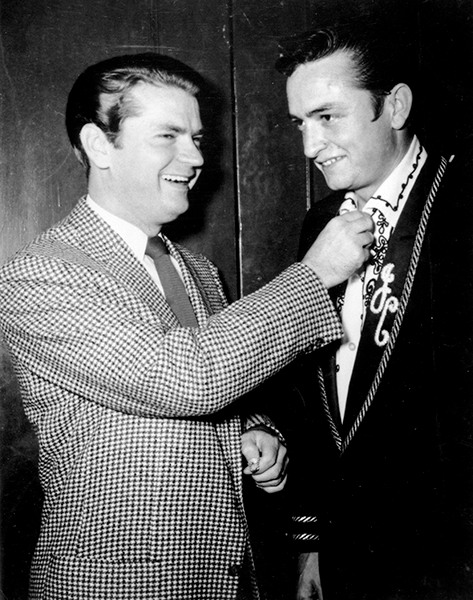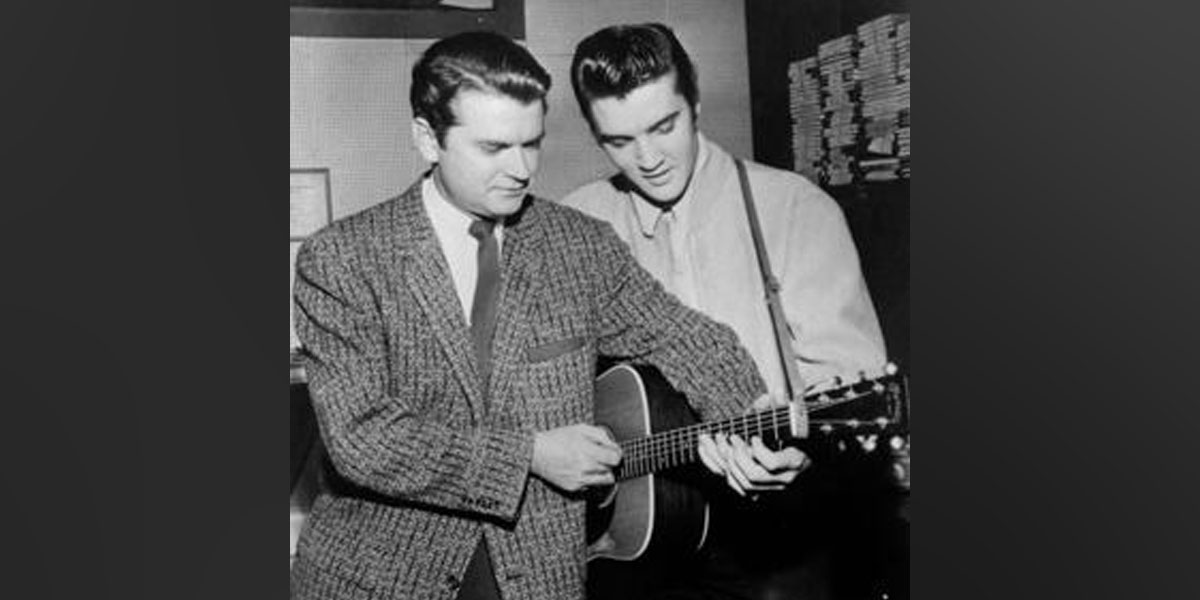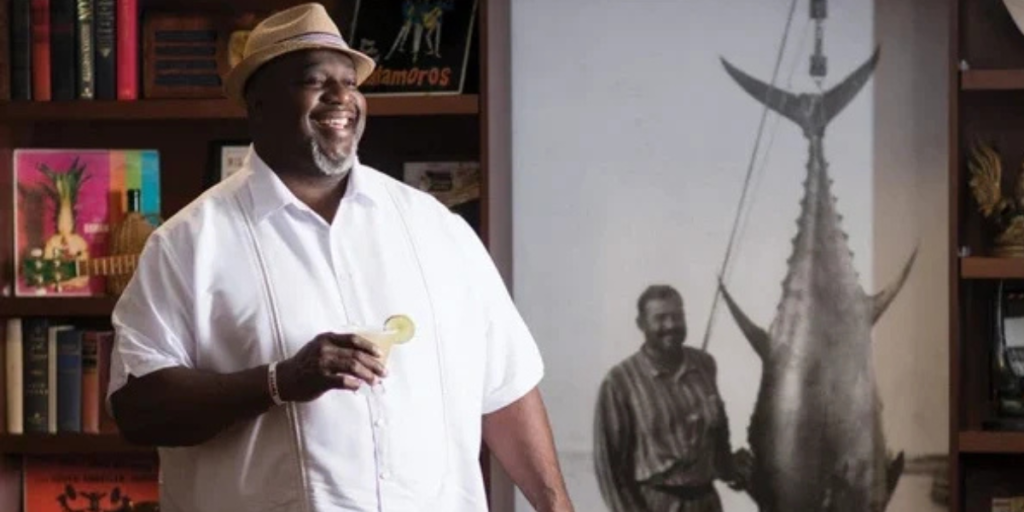It seems music magic has been repeatedly made in Alabama’s Muscle Shoals, but there is one nearby story that does not often get told: the story of the man who made Elvis Presley.
According to the Encylopedia of Alabama, on January 5, 1923, Samuel Cornelius Phillips was born as one of eight children to two Alabama farmers Charles and Madge Phillips. Deeply affected by the stock market collapse of the late 1920s during which they lost their family farm, the Phillips seemed destined to fall on desperately hard times.
During this time, Sam leaned into his passion for music. “Music was the mainstay of Phillips’s childhood. He grew up listening to the blues songs of African American workers in the fields and on Florence street corners, gospel music coming from the open windows of churches, and country music on the radio. While in high school, he was active in the band, playing sousaphone, trombone, and drums, and he eventually became the band’s conductor.”
Pivoting Toward Passion
In 1941, Phillips suffered the loss of his father Charles which prompted him to prioritize helping his mother and drop out of high school. Roughly one year later, he married Rebecca Burns. They went on to have two children, Knox and Jerry during which time he dreamed of pursuing law but, instead, opted to pursue his true passion for music.
Quickly, his expertise in music caught the eye of a Muscle Shoals radio station owner. Phillips was asked to host a religious music program and he readily accepted the position. The combination of this early opportunity and the knowledge gained from a small amount of audio engineering training at Alabama Polytechnic Institute, now known as Auburn University, allowed him some early success in radio.
He spent the next seven years of his career in different positions from host to radio engineer for stations in Decatur, Nashville, and, eventually, Memphis. It was this experience that allowed him to gain the knowledge he would need for long-term success in the industry.
The Road to Recording
Over the next few years, Phillips saw firsthand the lengths musicians and artists had to go to in order to get their music recorded, often traveling across cities to try and record in places like Nashville, New Orleans, or Chicago. He was deeply dissatisfied with the number of potential artists who would never get the opportunity to make it into a studio.
As a solution to this problem, Phillips opened Memphis Recording Service in 1950 at 706 Union Avenue. He set up his recording equipment and charged a minimal fee to anyone who wanted to record their music. While this served as a temporary solution, it did not satisfy Phillip’s true desire to produce top hits, and after continuous issues between Phillips and other labels, he decided to create a label of his own.

“Phillips started his own record label, Phillips Records, and soon released his first record, ‘Boogie in the Park,’ by Joe Hill Louis. Although not commercially popular, it attracted the attention of artists such as B. B. King, Chester Arthur Burnett (Howlin’ Wolf), and Ike Turner, all of whom later recorded their first records in Phillips’s Memphis studio.
In 1951, Phillips had his first hit, ‘Rocket 88,’ by Jackie Brenston and His Delta Cats, which reached number one on the rhythm and blues (R&B) charts.”
The Start of Sun Records
In 1952, Phillips changed the label’s name to Sun Records, and the new label’s first track to release was “Drivin’ Slow” by Johnny London. He also found success through “Bear Cat” with Rufus Thomas, but they would go on to lose a large amount of their royalties due to its striking similarity to the hit song “Hound Dog” by Big Mama Thornton.
After this early success, a name that would later become larger than life walked through the doors of Sun Records. A young Tennessee truck driver named Elvis Presley came in to record a song as a birthday present to his mother. He was promptly invited back in July of 1954 to make a full record.
“On July 5, 1954, in Phillips’s recording studio, a young Tennessee truck driver named Elvis Presley picked up a guitar between takes of a ballad he was recording, and played an up tempo version of Arthur Crudup’s ‘That’s Alright (Mama).’ This recording greatly influenced music for succeeding generations and launched the career of one of the most successful and influential artists of the twentieth century.”
A Lasting Legacy
Several labels later pushed Phillips to sell his contract with Elvis Presley. Phillips ultimately agreed, and he sold Elvis’s contract to RCA for $35,000. This was a decision he would go on to publicly regret. Although he wished he had kept the artist, the money from the sale funded the record label’s expansion. Soon, Phillips was able to offer deals to new names such as Johnny Cash, Jerry Lee Lewis, and Carl Perkins among others which would cement his legacy as a producer.
“Phillips is so far the only person to be inducted into the Rock and Roll Hall of Fame (1986), the Alabama Music Hall of Fame (1987), the Country Music Hall of Fame (2001), and the Rockabilly Hall of Fame. Today, the original site of Sun Records on Union Avenue in Memphis is recognized as a National Historic Landmark, and the city of Florence hosts a Sam Phillips Music Celebration each January.”
Courtesy of SoulGrown Alabama.













